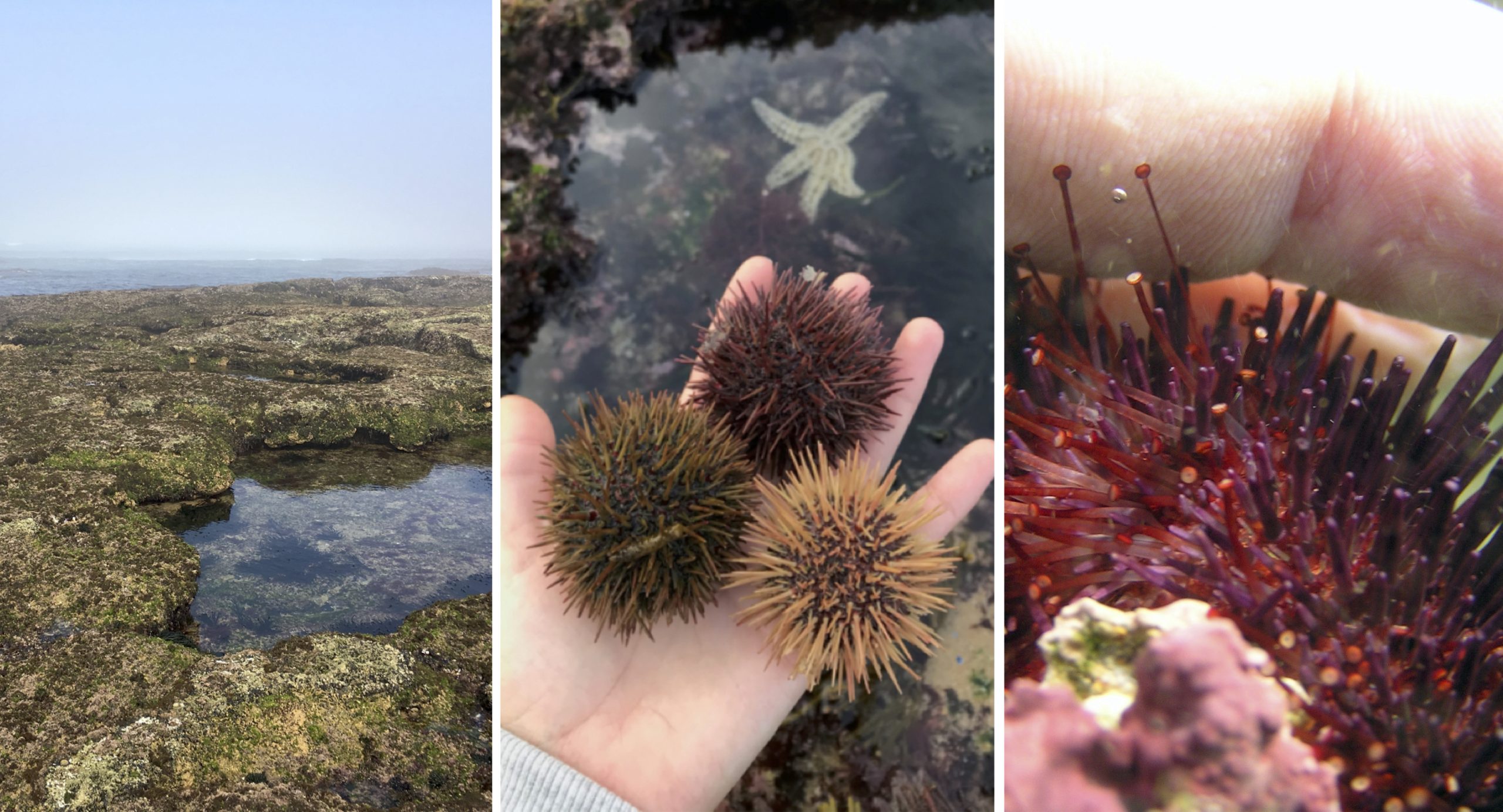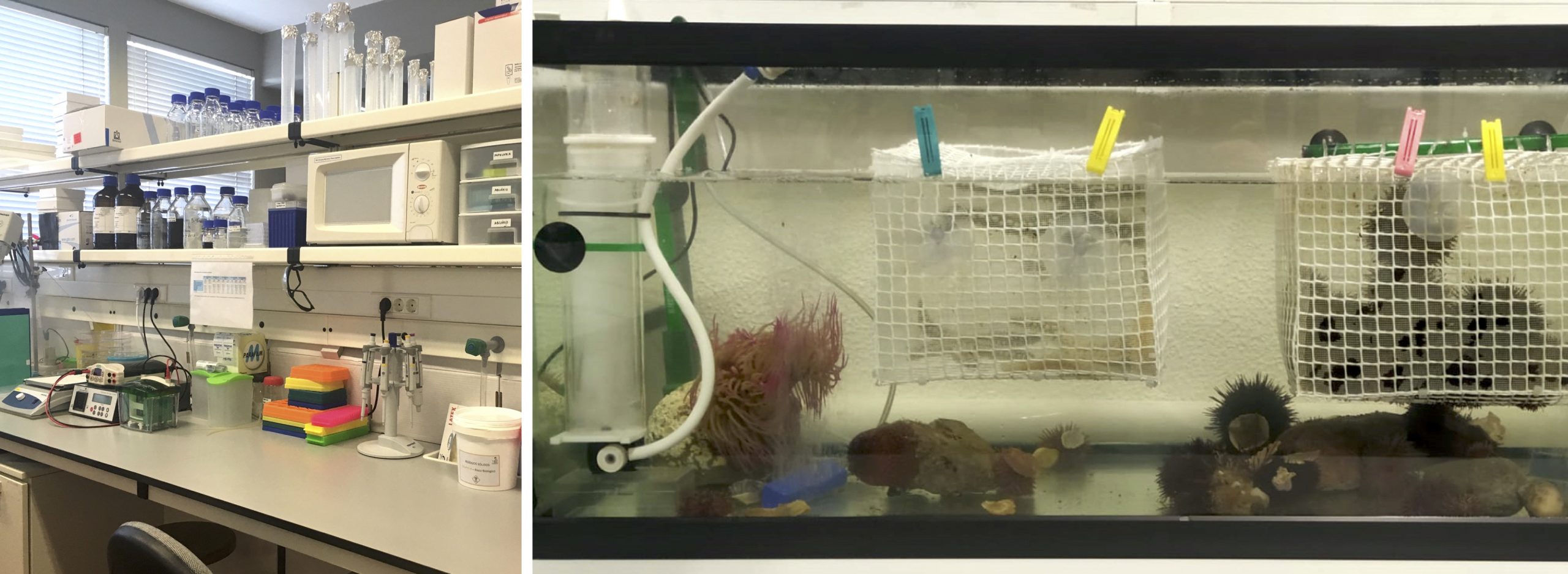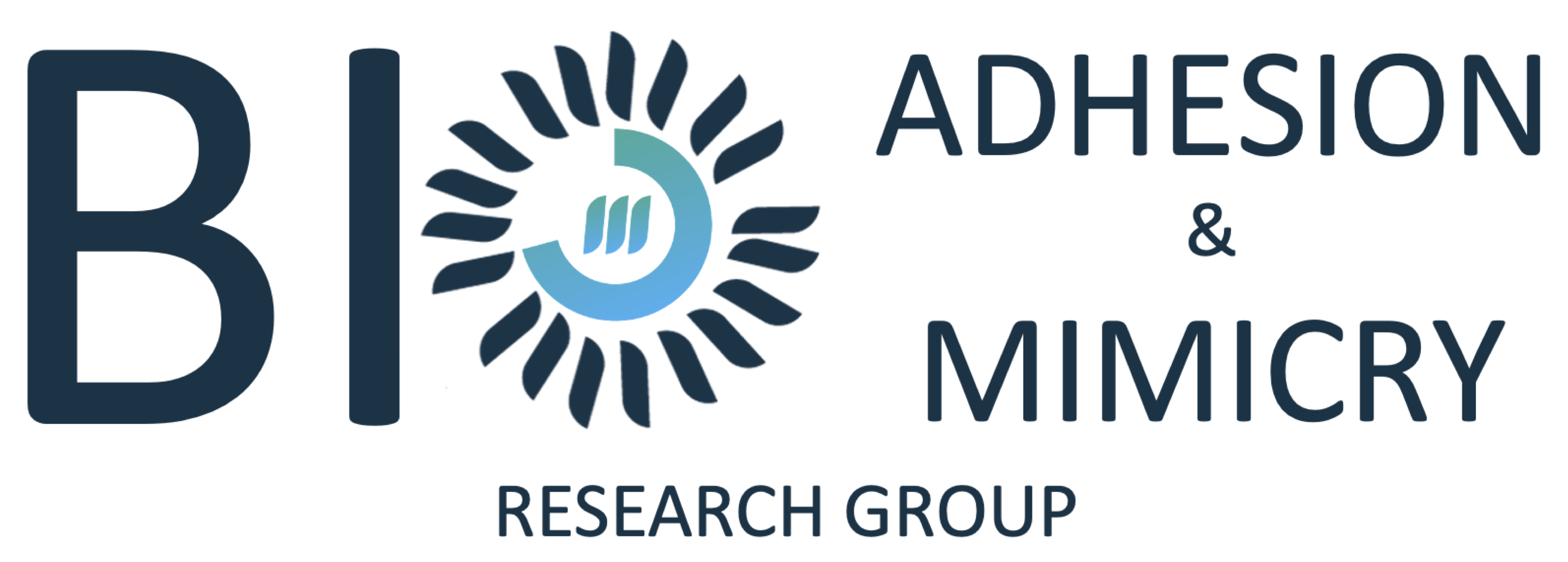
Our research aims to decipher the molecular mechanisms underlying marine bioadhesion with a focus on the development of new wet-effective, biocompatible and ecological biomimetic adhesives.
Using sea urchins has a model organism, we have produced substantial scientific knowledge on the molecules involved in sea urchin reversible adhesion, that allowed us to start bioengineering sea urchin-inspired bioadhesives.
We aim at contributing to develop new biological adhesives for use in medical and biotechnological applications, as surgical adhesives or promoters of cellular adhesion for in-vitro cultures and 3D organ printing.
We apply a multidisciplinary approach to understand bioadhesion, combining cellular, biochemical, molecular, chemical, biophysical and biomechanical analysis. Therefore, we have established multiple collaborations with other research groups within FCUL, but also with many international partners.
Currently our group is equipped with an aquarium to maintain sea urchins and other intertidal species. Several techniques have been also implemented in the group, such as:
● Imuno- and Lectin-histochemistry;
● Protein extraction and quantification;
● Protein separation by SDS-PAGE;
● Western- and Lectin-blotting;
● Enzyme-linked lectin assays (ELLA);
● Imuno- and Lectin pull-down assays.

